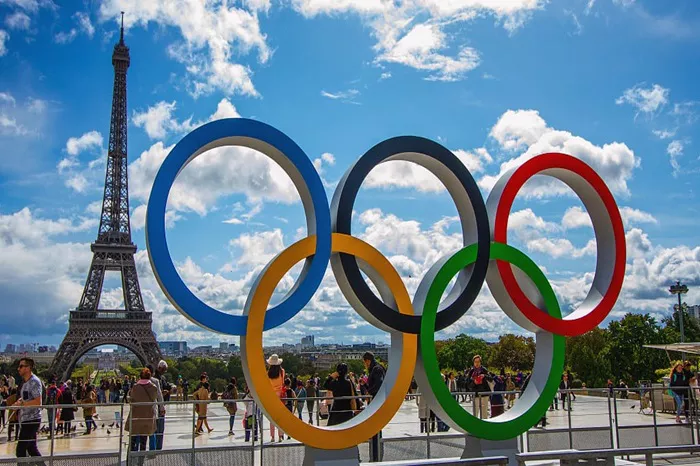Paris and its millions of visitors endured an extreme heat wave, impacting the ongoing Summer Olympics with potentially dangerous consequences. The intense heat, reaching up to 105 degrees Fahrenheit, has been linked to at least 23 fatalities across the Mediterranean region, though this figure may be an underestimation, according to the World Weather Attribution (WWA).
The heat wave has prompted widespread warnings across France, with spectators using misters and water hoses to cope with the sweltering conditions. Athletes, including renowned gymnast Simone Biles, faced increased risks of heat-related illnesses such as heat cramps and exhaustion. Biles, addressing the challenging conditions on Instagram before the gymnastics team final, noted the extreme temperatures and lack of air conditioning on her transport bus.
A recent WWA analysis attributed the severe heat to human-caused climate change. The study suggests that the current extreme temperatures in France and the Mediterranean would have been 5.9 to 4.5 degrees cooler in a pre-climate change world. The analysis also predicted that a “1 in 10 year” extreme heat event in July would have been 3°C (2.5 – 3.3°C) cooler without climate change. The report warns that without immediate action to reduce fossil fuel emissions, such extreme events will become more frequent, hotter, and longer-lasting.
The study highlights advancements in attribution science, which employs observational data and statistical methods to assess the likelihood and severity of extreme weather events in the context of climate change. Environmental reporter Emily Atkin, writing for HEATED, emphasizes the need for significant reductions in emissions to ensure the safety of future Olympic events. Atkin stresses that understanding the causes of climate change is essential for addressing its impacts effectively.
Supporting this view, multiple studies, including those cited by Atkin, indicate that 75% of current CO2 emissions stem from fossil fuel combustion, with an additional 13% from agriculture, forestry, and land use changes, primarily due to deforestation for beef production.
In addition to the heat, climate change has also contributed to other issues at the Paris Olympics. Unprecedented rainfall led to the Seine River becoming contaminated with fecal matter and other waste. Experts, including Metin Duran, a professor of civil and environmental engineering at Villanova University, criticized the event organizers for inadequate consideration of climate change impacts on stormwater management. Duran highlighted that the sewer overflow problems are expected to worsen until effective climate change mitigation measures are implemented.
The ongoing situation underscores the urgent need for global efforts to address climate change and its far-reaching effects on major events and daily life.
Related topics:
What Fossil Fuel Is Gasoline Made From?

